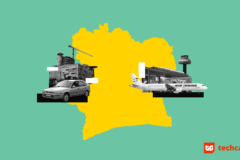This article was contributed to TechCabal by Seth Onyango via bird story agency.
Africa’s tech ecosystem is attracting billions of dollars, thanks to dynamic startups whose innovation and creativity are reshaping industries and unlocking new opportunities. The young population and digital connectivity are further fueling growth. From the fintech startups driving financial inclusion to the agri-tech startups improving food security, the impact of these startups is nothing short of transformational. Here are the ten most-funded tech industries:
1. Fintech (31.5%):
Fintech continues to dominate the African market, driven by a growing demand for digital financial services. Mobile money solutions are at the forefront, offering alternatives to traditional banking that appeal to millions of unbanked Africans. These digital options are attractive because they provide more portable and accessible financial services than traditional banking, which is often limited by paperwork and account maintenance requirements.
2. E-commerce and Retail Tech (11.3%):
E-commerce is booming as internet penetration rises and consumer behaviour shifts online. Platforms like Jumia have paved the way, reaching millions across the continent. Retail tech is tapping into social commerce, logistics optimisation, and direct-to-consumer business models, meeting the growing appetite for convenient shopping experiences.
3. E-health (10.1%):
E-health startups are addressing the challenges of inadequate healthcare infrastructure. Telehealth services are reducing the barriers to medical advice, while digital platforms like Helium Health in Nigeria are digitizing patient records. The rise in smartphone usage has made virtual care possible, improving access to healthcare even in remote regions.
4. Logistics (6.9%):
With a fragmented infrastructure across many African regions, logistics startups are innovating to streamline the supply chain. Companies like Kobo360 offer on-demand logistics services, helping businesses transport goods efficiently. Drone deliveries are gaining traction in Rwanda and Ghana, showing the creativity of solving delivery problems in challenging terrains.
5. Agri-tech (5.9%):
Agri-tech is key to enhancing productivity in a sector that employs over 50% of Africa’s workforce. Startups like Twiga Foods connect farmers directly to markets via mobile apps. They’re also using AI to predict crop diseases and optimize farming practices, addressing the critical challenge of food security.
6. Ed-tech (5.7%):
The continent’s education system faces resource constraints, and ed-tech startups are filling the gaps. Digital platforms provide courses and vocational training to millions. Eneza Education in Kenya, for example, offers curriculum-aligned learning via SMS, while other companies are working to expand coding and technical skills training.
7. Energy (4.9%):
Off-grid and renewable energy solutions are crucial as only 43% of the population has reliable electricity. Solar energy startups like M-KOPA offer pay-as-you-go solar home systems, while microgrids power entire communities. These innovations are helping bridge the energy access gap sustainably.
8. Transport (3.9%):
Transport startups alleviate traffic congestion and provide mobility solutions in rapidly growing urban areas. Ride-hailing services like Bolt are popular, and some companies offer motorbike taxis for better accessibility. There’s also a focus on electric vehicles, and startups are working to provide charging infrastructure.
9. Recruitment and HR (3%):
African job markets often struggle with skills mismatches and informal hiring processes. Recruitment startups are streamlining talent searches by digitizing the hiring process and leveraging AI for candidate matching. Companies like Shortlist in Kenya are finding ways to align employers with the right candidates, more efficiently.
10. AI (2%):
Though small, the AI sector is growing as local startups tap into machine learning for various applications. DataProphet in South Africa uses AI to optimize manufacturing processes, while other startups are building natural language processing for African languages. AI in agriculture, healthcare and education promises further transformation.





















